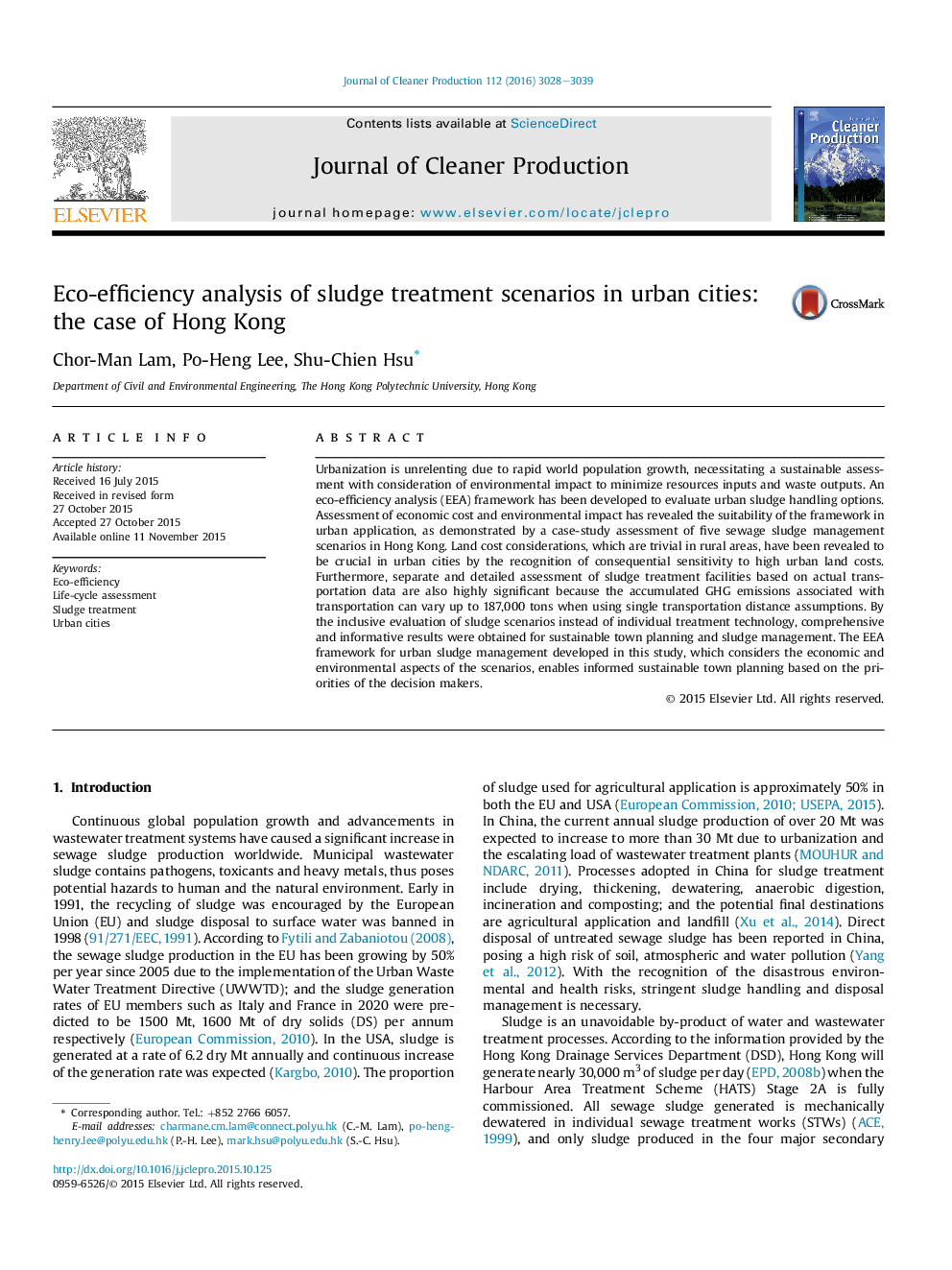| Article ID | Journal | Published Year | Pages | File Type |
|---|---|---|---|---|
| 10687888 | Journal of Cleaner Production | 2016 | 12 Pages |
Abstract
Urbanization is unrelenting due to rapid world population growth, necessitating a sustainable assessment with consideration of environmental impact to minimize resources inputs and waste outputs. An eco-efficiency analysis (EEA) framework has been developed to evaluate urban sludge handling options. Assessment of economic cost and environmental impact has revealed the suitability of the framework in urban application, as demonstrated by a case-study assessment of five sewage sludge management scenarios in Hong Kong. Land cost considerations, which are trivial in rural areas, have been revealed to be crucial in urban cities by the recognition of consequential sensitivity to high urban land costs. Furthermore, separate and detailed assessment of sludge treatment facilities based on actual transportation data are also highly significant because the accumulated GHG emissions associated with transportation can vary up to 187,000 tons when using single transportation distance assumptions. By the inclusive evaluation of sludge scenarios instead of individual treatment technology, comprehensive and informative results were obtained for sustainable town planning and sludge management. The EEA framework for urban sludge management developed in this study, which considers the economic and environmental aspects of the scenarios, enables informed sustainable town planning based on the priorities of the decision makers.
Related Topics
Physical Sciences and Engineering
Energy
Renewable Energy, Sustainability and the Environment
Authors
Chor-Man Lam, Po-Heng Lee, Shu-Chien Hsu,
